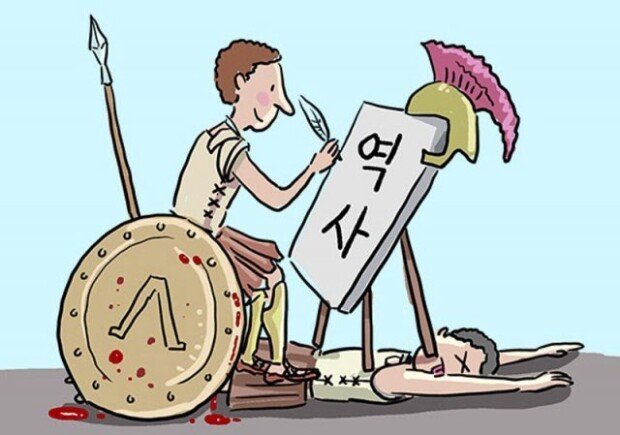History is written by the winners
History is written by the winners
Posted March. 14, 2023 07:39,
Updated March. 14, 2023 07:39

"History is written by the winners" is a common saying that often arises in response to my lectures or appearances on broadcasts. This sentiment has merit, as exemplified by the Goryeo history book, written by the Joseon dynasty as a national project. While the book aims to explain Goryeo's inevitable collapse and Joseon's foundation, it also omits and distorts certain historical events.
The transition to Joseon, however, is relatively less scandalous than other instances throughout world history, where defeated nations either disappeared forever or were assimilated by the victors, losing their language and culture. In fact, the names of such nations and cities can only be found on victory monuments erected by the conquerors. Take the example of Persia, once a vast empire, but failed to leave behind its perspective on the Greece-Persian war and the conquering of Alexander the Great. Thus, glimpses into Persia's rise and fall can only be found in the records of Greek historians.
One may easily become pessimistic about the accuracy and impartiality of historical records. However, history is a discipline that constantly strives to discover the truth beyond the distortions, just as other fields of study do. Even astronomy can be considered the history of the victors. The stars we observe are closer, brighter, or eclipse others, making them the first to catch our attention. Nonetheless, astronomers continue to work diligently to expand their understanding of the universe beyond what is visible. The fight against uncertainty is the very reason why all disciplines and sciences exist.
But it's important to note that the defeated may also leave distortions in their records. They may attempt to justify their loss or exaggerate the evil of their opponents. Misunderstandings of the enemy's capacity may also appear, as evident in Rommel's battle record. It is understandable, as it is not easy to gain a clear understanding of the other side during war. However, Rommel's work is significant because it acknowledges and strives to correct such misunderstandings. Sometimes, however, the desire to win or the frustration of losing can cloud one's judgment and lead to defeat, even when victory is within reach. What is really dangerous is the history of justification or mental victory.





![“한동훈, 정치생명 걸고 무소속 출마해 평가받는 것 고려할만”[정치를 부탁해]](https://dimg.donga.com/c/138/175/90/1/wps/NEWS/IMAGE/2026/01/19/133186982.1.jpg)
![‘건강 지킴이’ 당근, 효능 높이는 섭취법[정세연의 음식처방]](https://dimg.donga.com/c/138/175/90/1/wps/NEWS/IMAGE/2026/01/18/133181291.1.jpg)
